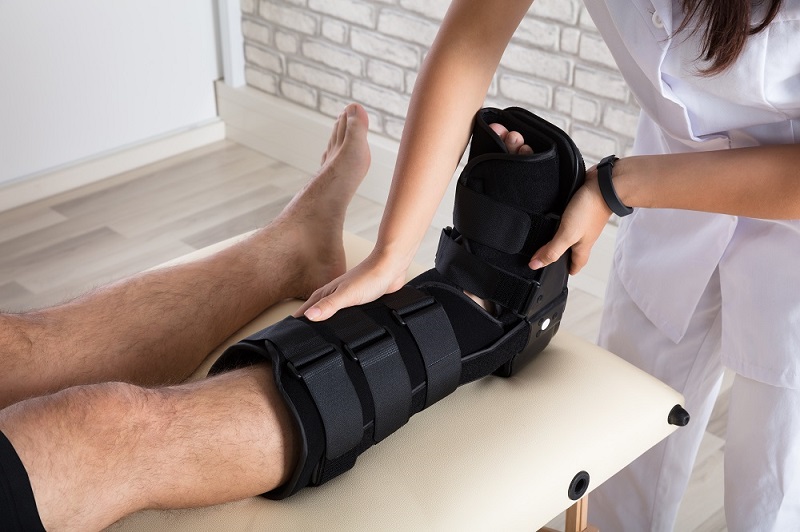
About one in every three persons experience chronic pain, and one in five of them experience nerve pain. Neuropathic pain is a chronic problem that can occur due to an injury, disease, or infection. It is usually caused by progressive nerve disease and occasionally flares up even without an apparent pain-inducing factor. Treatment might include medication, physical therapy, surgery, and psychological counseling. There are also cases of acute neuropathic pain, but it is rare. Here is everything you need to know about neuropathic pain, also known as nerve pain.
What is neuropathic pain?
Neuropathic pain occurs when your nervous system is not functioning well or has suffered some sort of damage. The pain can be felt from any level of the nervous system, from the peripheral nerves to the spinal cord to the brain. The peripheral nerves spread to other parts of your body, including the arms, legs, fingers, toes, etc.
What happens is that the damaged or malfunctioning nerve fibers send false signals to pain centers resulting in neuropathy. Therefore neuropathy refers to a disturbance of one or more nerve functioning.
Symptoms of nerve pain
- A burning, shooting, or stabbing pain.
- Spontaneous pain that occurs without a trigger.
- A tingling sensation or numbness (pain and needles feeling)
- Evoked pain that occurs when you are in certain situations that are typically not painful, for instance, cold temperatures, brushing your hair, rubbing the part against something, etc.
- Difficulty resting or sleeping.
- A chronic sensation of abnormality.
- Emotional problems due to the pain, difficulty explaining how you are feeling, and disturbed sleep.
Causes of nerve pain
Neuropathic pain can result from an illness, infection, injury, or loss of a limb.
Illness
Nerve pain can occur as a symptom or complication of a particular health condition such as diabetes, multiple sclerosis, myeloma, and other types of cancer. However, not everyone with these health conditions will experience nerve pain. People with diabetes often experience a tingling, numbing pain in their limbs, and medication is used for nerve pain management.
An injury
An injury to the muscles, tissues, or joints can cause neuropathic pain. For instance, when you suffer an accident or injury that affects the nerve fibers around your spine, back, leg, hips, arm, or leg, the injury may heal, but the nerve system may not, leading to persistent nerve pain.
An infection
Some infections can cause nerve pain. For instance, shingles caused by a reactivation of the chickenpox virus can cause nerve pain. People with syphilis and HIV infection can also experience unexplained nerve pain.
The loss of a limb
When a limb is removed, there is a likelihood of suffering neuropathic pain called phantom limb syndrome. The brain still assumes that it is receiving pain signals from the amputated part.
Other causes of nerve pain
- Surgeries or trauma resulting in nerve damage.
- Facial nerve problens.
- Arthritis in the spine.
- Thyroid problems.
- Vitamin B deficiency.
- Radiation therapy.
- Chemotherapy drugs.
Conclusion
Your physician can identify the cause of your nerve pain based on your medical history and a physical exam and determine a suitable treatment plan. Nerve pain is manageable through medication and lifestyle treatments.




